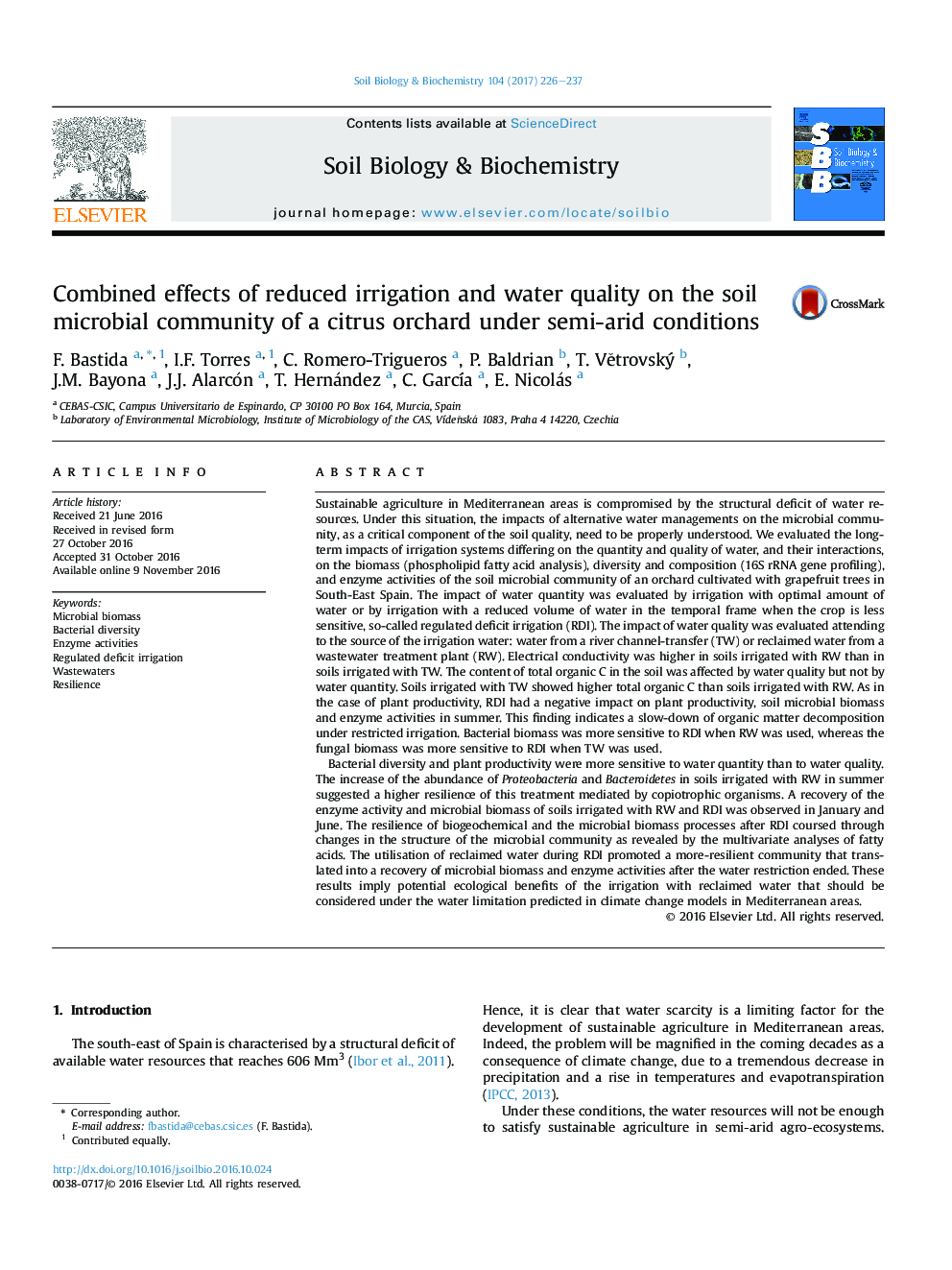| کد مقاله | کد نشریه | سال انتشار | مقاله انگلیسی | نسخه تمام متن |
|---|---|---|---|---|
| 5516463 | 1542580 | 2017 | 12 صفحه PDF | دانلود رایگان |
- The impacts of water-management strategies against climate change are analyzed.
- Restricted irrigation reduced microbial biomass and enzyme activities.
- Bacterial and fungal resistance to restricted irrigation depends on water quality.
- Water quality altered community structure while restricted irrigation impacted bacterial diversity.
Sustainable agriculture in Mediterranean areas is compromised by the structural deficit of water resources. Under this situation, the impacts of alternative water managements on the microbial community, as a critical component of the soil quality, need to be properly understood. We evaluated the long-term impacts of irrigation systems differing on the quantity and quality of water, and their interactions, on the biomass (phospholipid fatty acid analysis), diversity and composition (16S rRNA gene profiling), and enzyme activities of the soil microbial community of an orchard cultivated with grapefruit trees in South-East Spain. The impact of water quantity was evaluated by irrigation with optimal amount of water or by irrigation with a reduced volume of water in the temporal frame when the crop is less sensitive, so-called regulated deficit irrigation (RDI). The impact of water quality was evaluated attending to the source of the irrigation water: water from a river channel-transfer (TW) or reclaimed water from a wastewater treatment plant (RW). Electrical conductivity was higher in soils irrigated with RW than in soils irrigated with TW. The content of total organic C in the soil was affected by water quality but not by water quantity. Soils irrigated with TW showed higher total organic C than soils irrigated with RW. As in the case of plant productivity, RDI had a negative impact on plant productivity, soil microbial biomass and enzyme activities in summer. This finding indicates a slow-down of organic matter decomposition under restricted irrigation. Bacterial biomass was more sensitive to RDI when RW was used, whereas the fungal biomass was more sensitive to RDI when TW was used.Bacterial diversity and plant productivity were more sensitive to water quantity than to water quality. The increase of the abundance of Proteobacteria and Bacteroidetes in soils irrigated with RW in summer suggested a higher resilience of this treatment mediated by copiotrophic organisms. A recovery of the enzyme activity and microbial biomass of soils irrigated with RW and RDI was observed in January and June. The resilience of biogeochemical and the microbial biomass processes after RDI coursed through changes in the structure of the microbial community as revealed by the multivariate analyses of fatty acids. The utilisation of reclaimed water during RDI promoted a more-resilient community that translated into a recovery of microbial biomass and enzyme activities after the water restriction ended. These results imply potential ecological benefits of the irrigation with reclaimed water that should be considered under the water limitation predicted in climate change models in Mediterranean areas.
Journal: Soil Biology and Biochemistry - Volume 104, January 2017, Pages 226-237
